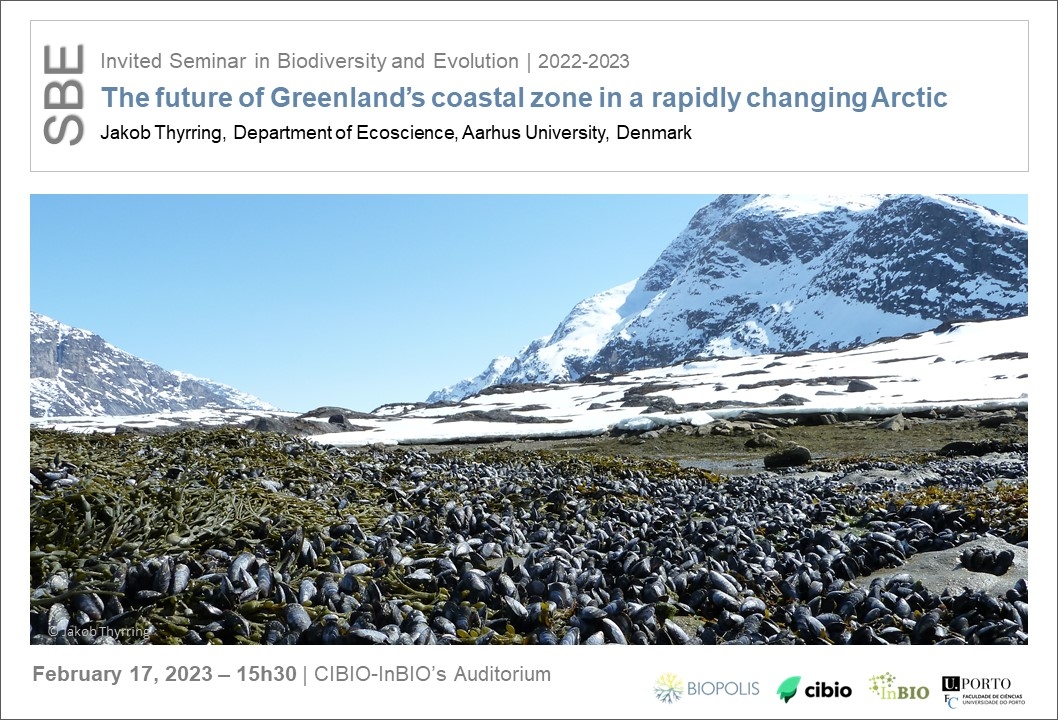The future of Greenland’s coastal zone in a rapidly changing Arctic
Event
INVITED SEMINAR IN BIODIVERSITY AND EVOLUTION
As a benthic ecologist, I focus on the environmental factors and species interactions that control populations in both intertidal and subtidal polar habitats. Mainly I study the coastal zone around Greenland to understand how climate change and human activities intertwin and affect Arctic coastal ecosystems through time and space. I often use blue mussels as a model organism to understand how the interplay between physiology, ecology and environmental stress impact population dynamics and ecosystem structure and function.
February 17th, 2023
Jakob Thyrring, Department of Ecoscience, Aarhus University, Denmark | 15h30 - CIBIO-InBIO’s Auditorium, Campus de Vairão

INVITED SEMINAR IN BIODIVERSITY AND EVOLUTION
The Arctic is warming 4-times faster than the global average, and combined with a diminishing cryosphere, this may allow temperate species to expand in the region. Continued warming is predicted to suppress endemic Arctic species while facilitating a northward expansion of temperate species. However, current species distribution and knowledge of drivers affecting population dynamics are largely unknown. Greenland’s coastlines are north - south orientated, hereby providing an ideal setting to study the impact of climate change on marine species population dynamics and ecosystem responses.
In this talk, I will present results from our coastal work in Greenland, and touch on how species physiology and different abiotic drivers affects the distribution of species, and the dynamics of coastal systems.
[Host: FernandoP. Lima, Marine Ecology, Diversity and Change - MarChange]
